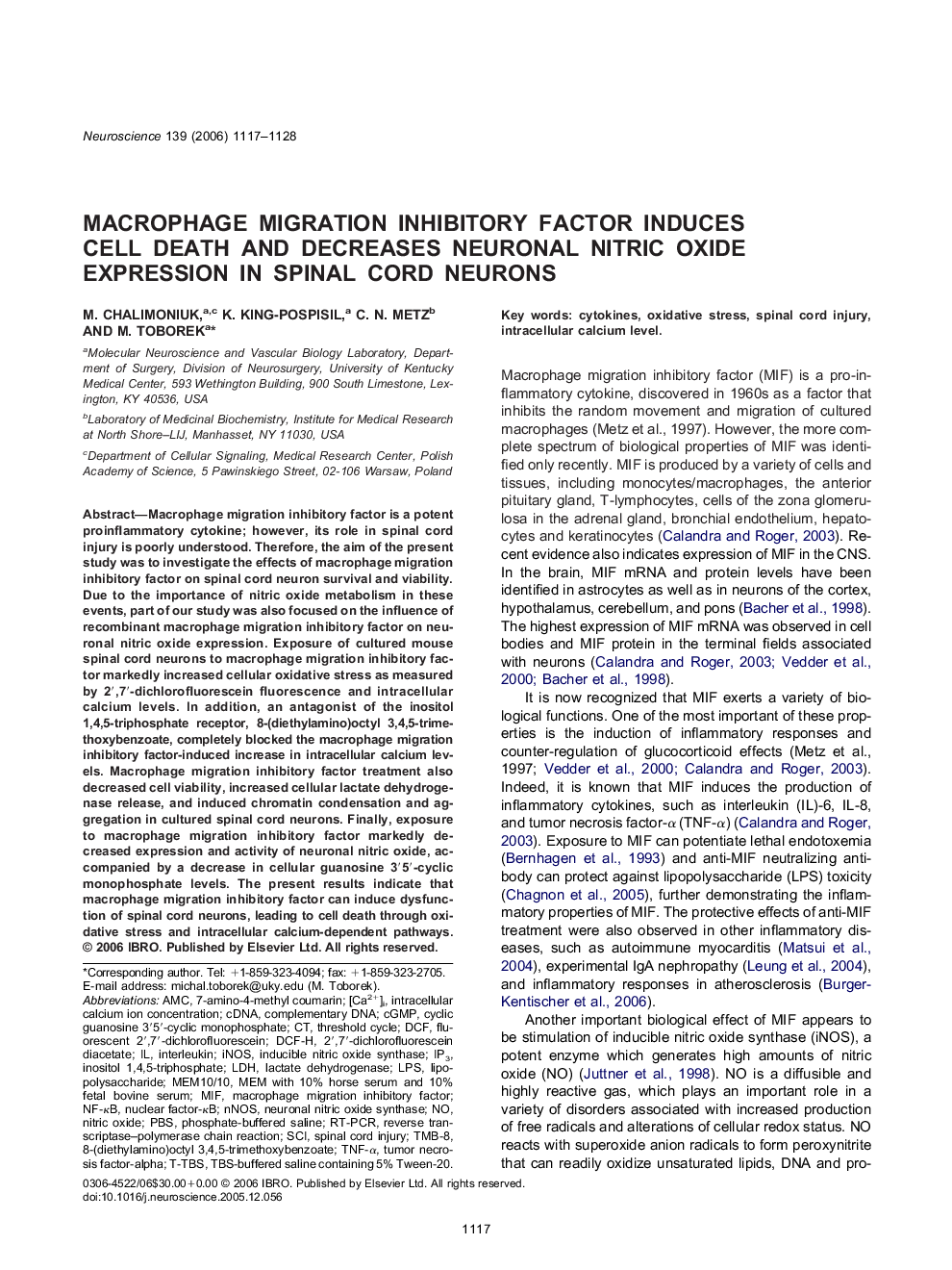| Article ID | Journal | Published Year | Pages | File Type |
|---|---|---|---|---|
| 4341939 | Neuroscience | 2006 | 12 Pages |
Macrophage migration inhibitory factor is a potent proinflammatory cytokine; however, its role in spinal cord injury is poorly understood. Therefore, the aim of the present study was to investigate the effects of macrophage migration inhibitory factor on spinal cord neuron survival and viability. Due to the importance of nitric oxide metabolism in these events, part of our study was also focused on the influence of recombinant macrophage migration inhibitory factor on neuronal nitric oxide expression. Exposure of cultured mouse spinal cord neurons to macrophage migration inhibitory factor markedly increased cellular oxidative stress as measured by 2′,7′-dichlorofluorescein fluorescence and intracellular calcium levels. In addition, an antagonist of the inositol 1,4,5-triphosphate receptor, 8-(diethylamino)octyl 3,4,5-trimethoxybenzoate, completely blocked the macrophage migration inhibitory factor-induced increase in intracellular calcium levels. Macrophage migration inhibitory factor treatment also decreased cell viability, increased cellular lactate dehydrogenase release, and induced chromatin condensation and aggregation in cultured spinal cord neurons. Finally, exposure to macrophage migration inhibitory factor markedly decreased expression and activity of neuronal nitric oxide, accompanied by a decrease in cellular guanosine 3′5′-cyclic monophosphate levels. The present results indicate that macrophage migration inhibitory factor can induce dysfunction of spinal cord neurons, leading to cell death through oxidative stress and intracellular calcium-dependent pathways.
